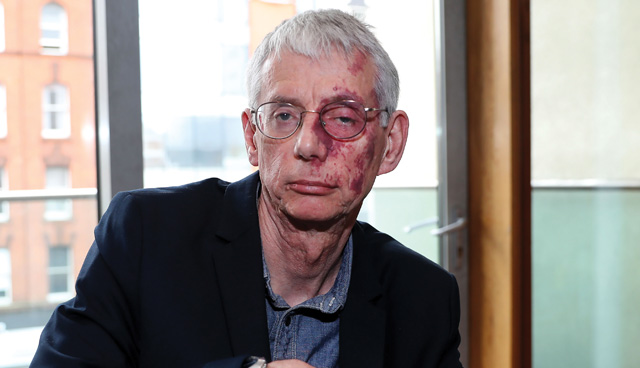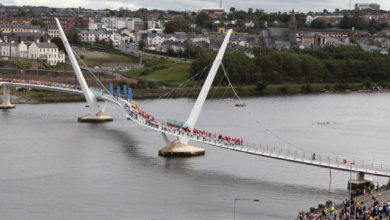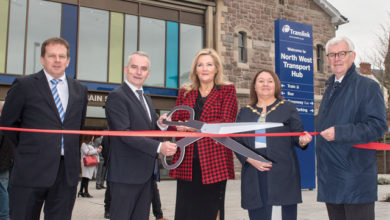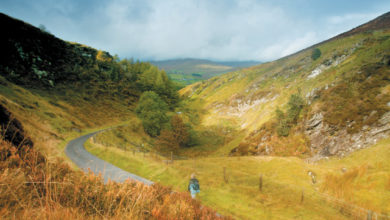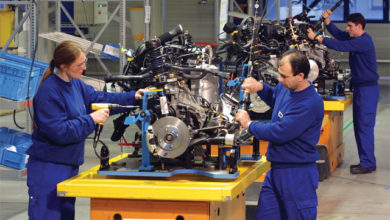Derry waits
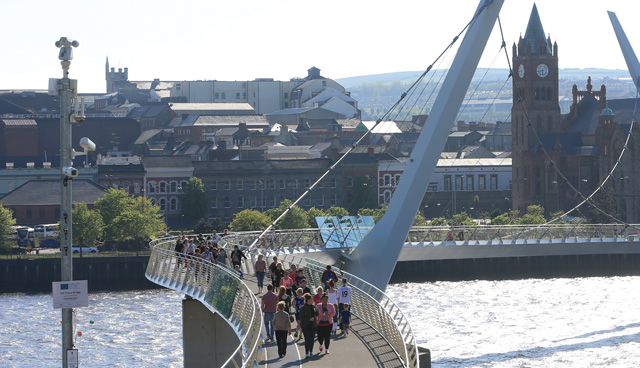
Economist Paul Gosling outlines optimism and opportunity for economic improvement in the North West but argues that major progress will require currently absent political leadership.
First, the good news. Derry is one of the most improved small cities in the UK’s devolved nations, according to the 2019 Good Growth Index published by the Demos think-tank and accountancy firm PwC. The bad news, though, is that Derry remains firmly at the bottom of the list as the worst performing small city across Northern Ireland, Scotland and Wales. The assessment is based on a range of factors, including jobs, average income, skills and the quality of the environment.
The most recent claimant count statistics show that the Derry City and Strabane council area continues to suffer Northern Ireland’s highest unemployment rate at 4.7 per cent, which compares poorly with the Northern Ireland average of 2.6 per cent – and the lowest rate of just 1.6 per cent in Lisburn and Castlereagh. However, the claimant count rate in Derry/Strabane has fallen by 5 per cent in the last year, a drop which has only been exceeded by that in Belfast. More concerning is the economic inactivity rate, which is the worst in Northern Ireland and almost 7 per cent higher than the average. Earlier this year economic inactivity was reported for Derry/Strabane at 34.1 per cent and, along with Belfast and Newry, was in the worst 2 per cent in the whole of the UK.
Low pay is another problem. Typical weekly pay (gross median) last year across Northern Ireland was £423. For those working in Derry/Strabane it was £382. But for those living in Derry/Strabane it was only £342, 20 per cent less than the typical Northern Ireland wage. Incidentally, for residents of Derry/Strabane it actually fell last year, down marginally from 2017.
We can also learn much about the local economy by observing the sectoral spread of businesses: Derry/Strabane is below the Northern Ireland average for firms in the often well paid sectors of professional services and finance, while having an above average presence in construction and the often low wage retail and health sectors. One positive sign is that the Derry/Strabane council area was the only one in Northern Ireland last year to record a growth in business start-ups.
For an explanation of some of these statistics, it is worth referencing the economist John FitzGerald’s analysis of the economic woes of Northern Ireland as a whole, which tend to be magnified for the North West. FitzGerald explained that the North’s economic weakness is the result, more than anything, of our education policies. We have too few university places, too few graduates in our labour market and too many pupils leaving school without basic skills. When I did an analysis a few years ago I was unable to find any city in the EU with a lower proportion of graduates in the population than in Derry. And the exam outcomes for boys are poor in several of the city’s schools.
These factors provide the context for the £50 million Derry City and Strabane City Deal proposal. This has been agreed in principle, as has Belfast’s £350 million region city deal, by the UK Government. At the core of the City Deal are proposals to strengthen the skill base and the transport and digital infrastructure of the city region, which should drive improvements in productivity and returns on private sector investment.
One of those building blocks in the City Deal is designed to address the crisis in the NHS locally, rather than by itself boosting the size of the economy. Ulster University, with the backing of the Council, has submitted a business case for a graduate entry medical school in the city’s Magee campus. This would hopefully provide a flow of qualified doctors for the local Altnagelvin hospital and for GP surgeries, reducing the £27 million cost last year in the region for locum doctors and other temporary medical workers. It would also provide the first steps in the long awaited expansion of the Magee campus.
The aim is for Magee to become a full-sized university campus, at nearly 10,000 students, up from the current number of full time students of around 3,500, many of whom are nurses, and away on work placement for much of the year. The main focus of that planned expansion is on the current activities of excellence at the campus, which include artificial intelligence, robotics, augmented reality and data analytics, the last of which links to the related specialism of personalised medicine. The existing C-TRIC (Clinical Translational Research and Innovation Centre) facility brings together Ulster University with Altnagelvin hospital, to analyse genomic sequencing and its relationships to health and treatment. With sufficient numbers of undergraduates and then graduates in these niche subjects, there can be optimism that new employers will be attracted to the region, while spin-off businesses are also likely.
There are also hopes that the Irish State might invest in higher education in the city, following recent comments by Taoiseach Leo Varadkar that his government is keen to support cross-border university provision and transport infrastructure, to help to build the northern economy and strengthen relationships between the two jurisdictions.
“We have too few university places, too few graduates in our labour market and too many pupils leaving school without basic skills.”
City deals have been rolled-out across much of the UK, though the only two approved (in principle) in Northern Ireland are those of the Belfast city region (comprising six council areas) and that of Derry/Strabane (which has no other local authority partners). The rationale for city deals is that economic investment decisions need to be taken locally, to take into account relevant priorities and circumstances, and that the multi-year investment can pay for itself by increasing employment, thereby raising tax revenues and reducing benefits payments.
But what is unprecedented about the £50 million Derry/Strabane City Deal is that it is accompanied by a second funding promise, to recognise the special circumstances of a region with one of the very worst deprivation and economic conditions in the whole of the UK. A £55 million Inclusive Future Fund has also been agreed in principle by the UK Government, which it is hoped will improve the outlook for those who left school without employable skills and experience.
“The new Inclusive Future Fund recognises the unique circumstances facing the region and will help create new opportunities for the whole of the community, especially for young people,” explained the then Northern Ireland Secretary of State, Karen Bradley, announcing the scheme’s approval in May of 2019. The fund will invest in projects to support young people through jobs and skills opportunities, tackle the causes and consequences of long-term social deprivation and provide linkages to enable the economic benefits of university expansion to be felt across the wider population.
All of this represents an opportunity for real and sustainable development of the North West regional economy – but only if the Government’s approvals in principle move to actual progress. Derry City and Strabane District Council believes that the £105 million from the UK Government could lead to a total investment in and around the city of about £300 million through additional contributions from the council itself, Ulster University, local businesses and the Northern Ireland Executive.
And there lies the rub. Without an Executive, little or nothing will move forward and the City Deal stays in the pending tray. The North West remains in the waiting room, hoping for political leadership.

